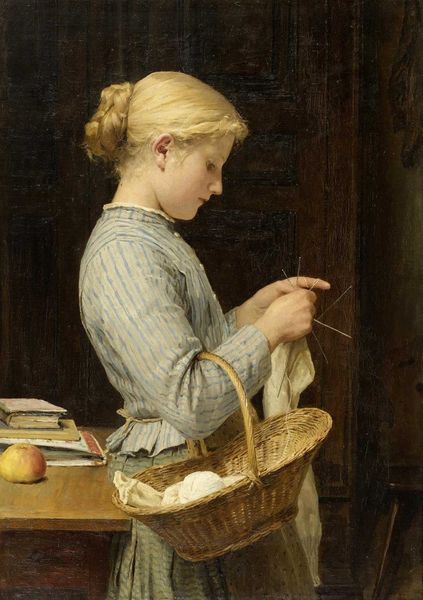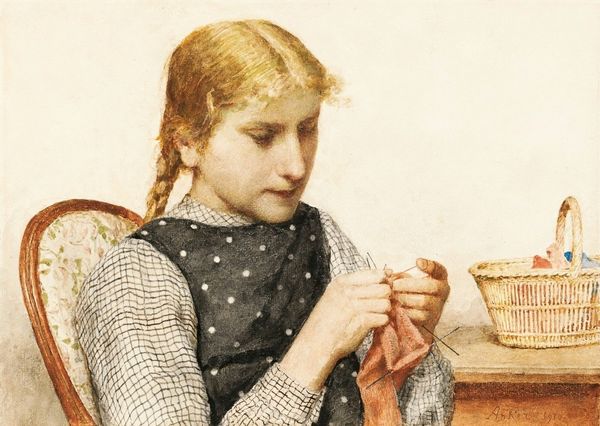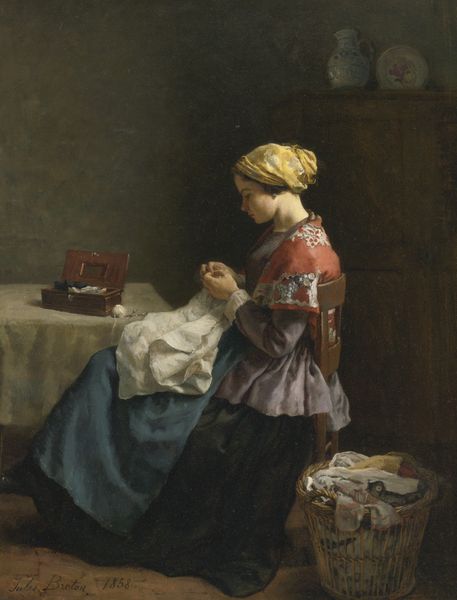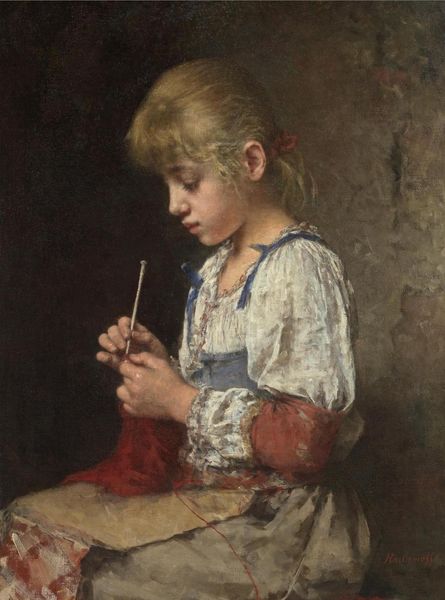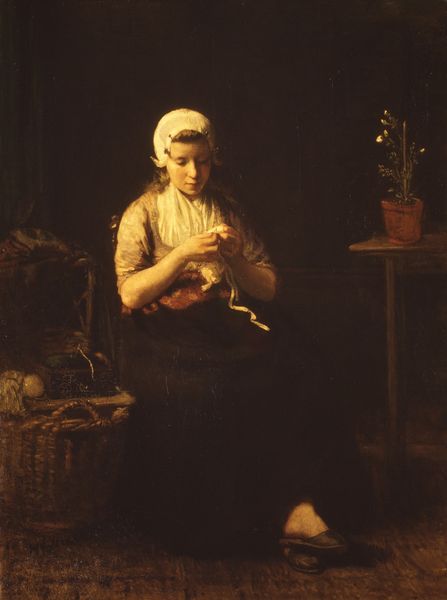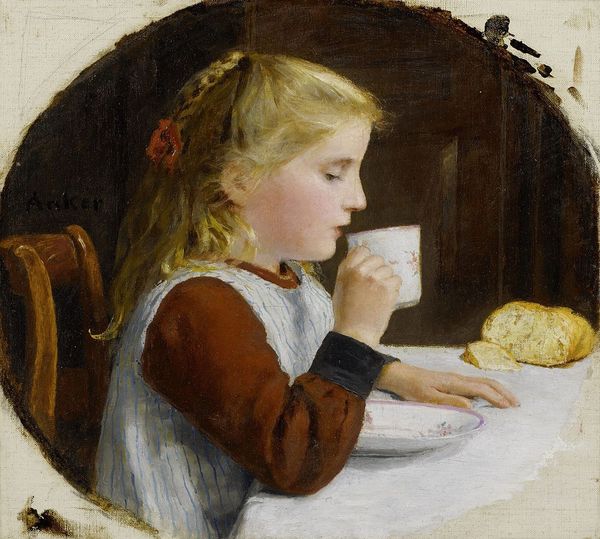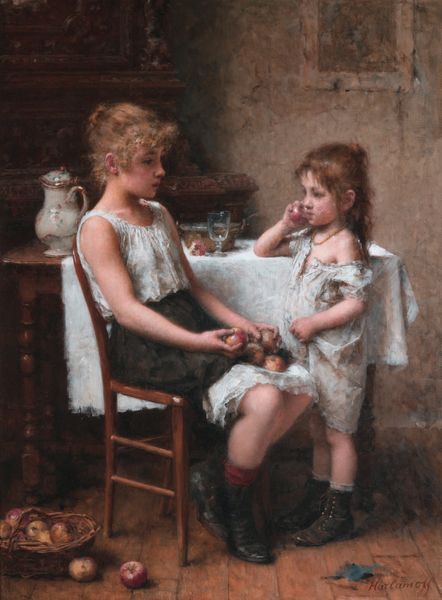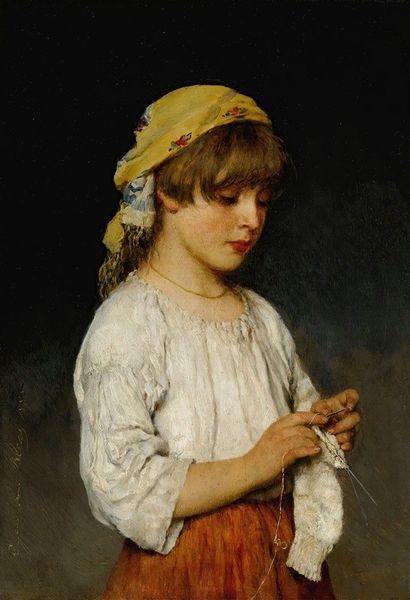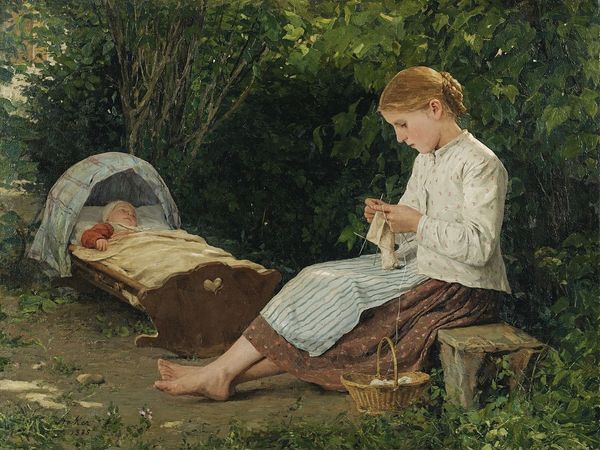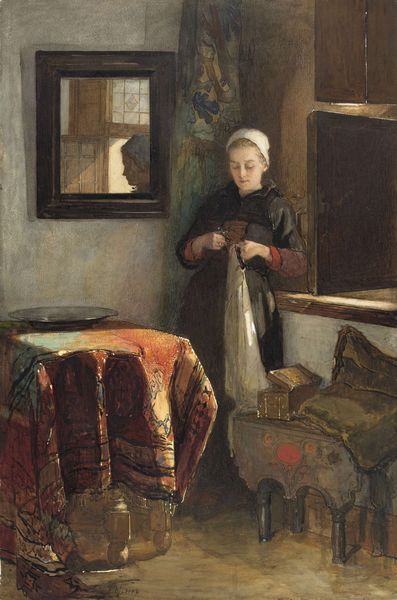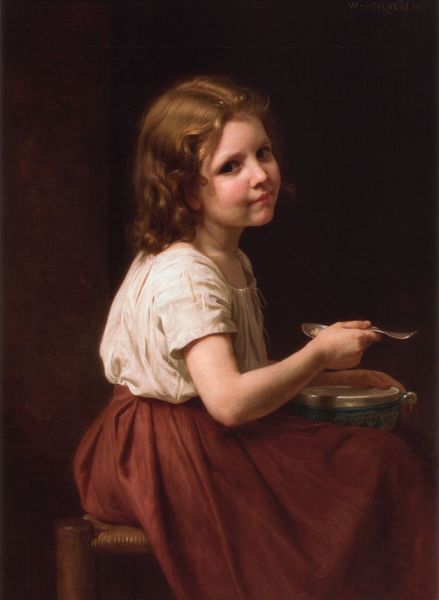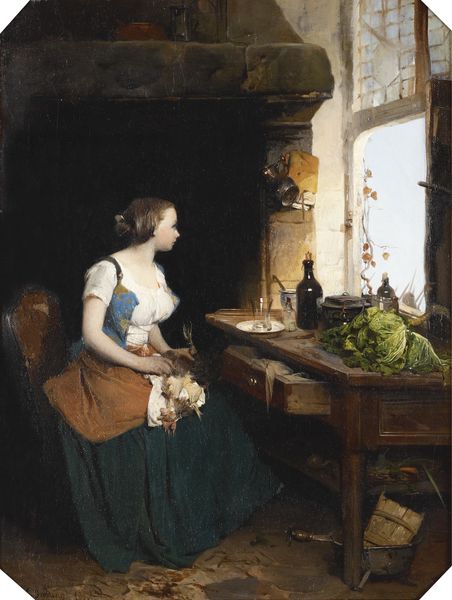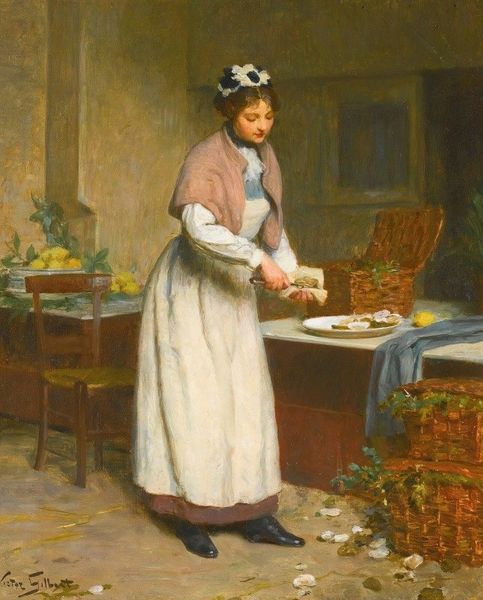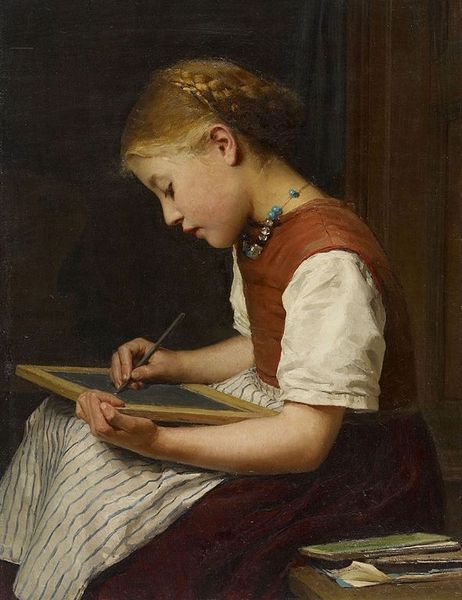
Copyright: Public domain
Albrecht Anker painted this quiet scene of a girl peeling potatoes in what seems like a humble, rural kitchen. Anker's work often highlighted the lives of children within the Swiss rural class, reflecting the social values and structures of his time. Here, the young girl is shown performing domestic labor, a common reality for many young women in 19th-century societies. She is caught in the middle of her work, her gaze downward, suggesting a narrative of duty and perhaps limited opportunity, hinting at the expectations placed upon young girls during this period. It's interesting to consider how Anker’s identity and social position might influence his portrayal of this scene. Does he romanticize the simplicity of rural life, or does he offer a commentary on the socioeconomic realities that shape this girl's existence? What feelings arise when seeing this painting? Does the image of the girl resonate with histories of labor, gender, and childhood? The emotional resonance in the artwork lies in the tension between the simple beauty of the scene and the subtle social implications it carries.
Comments
No comments
Be the first to comment and join the conversation on the ultimate creative platform.
